When it comes to artistic expression, happiness is not always a monetary bottom line or extensive commercial success. More often than not, one needs to breakaway from the mold and dare to follow their creative impulses to uncover their potential. Doing just that, English Singer-Songwriter/Producer Thomas Dolby attained major success in music back in 1982 with the easily recognized single “She Blinded Me With Science.” Considered a defining song from the ’80s synth-laden era, Dolby boldly did not follow the standard record industry formula and pushed the envelope in a different direction with each subsequent album, begun with 1984’s impeccable collection of songs, The Flat Earth.
Going on to release three more albums, score film and video games, as well as produce others, Dolby continues to march to the beat of his own drum over three decades later. Recently we sat down with the multi-talented Dolby to talk his experiences in music, his new autobiography, The Speed of Sound: Breaking the Barriers Between Music and Technology, creative inspiration, and much more.
CrypticRock.com – You have been involved in music for over thirty-five years now, attaining a great deal of success as a performer, writer, and producer in the ’80s. While most know you for such hits as “She Blinded Me With Science,” your influence is far greater than such. First, tell us, what has this incredible journey been like?
Thomas Dolby – I have been very fortunate because I’m a person that doesn’t stay in one place for a long time. I always move forward to things that are a little bit more unexplored. It’s unfortunate to be working in an era where technology and the creative business landscapes are changing very rapidly, both in the media and musical entertainment, but also in technology itself. There is always something new on the horizon that I can go and dip my feet in. That’s been very stimulating for a number of years.
CrypticRock.com – As you said, technology keeps changing as well. Your music is very eclectic by nature. Yes, you use synthesizers, but you have a very broad range of sounds mixed in. As a musician, has it always been important for you to keep your songs diverse?
Thomas Dolby – Yeah, it’s not just the sounds really, it’s sort of the genres that I am writing in. I basically grew up in the Punk era and, when you think of Punk Rock, you think of screaming vocals, fast guitars, and drums. The ethos of Punk was more a sort of DIY attitude in response to the more nuanced sounds of 1970s, Progressive Rock, and things like that. The Punk generation were happy to dive into something when they lacked experience and skills, but they just dove in and sort of expressed themselves in a new medium. Although my work has covered a lot of different genres, from the more obvious Electronica roots, compared to more organics on Flat Earth (1984), to more Funk-based grooves on Aliens Ate My Buick (1988), to a more introspective Singer-Songwriter type songs on Astronauts and Heretics (1992) as well as A Map of the Floating City (2011).
Even then, if you take the last album, A Map of the Floating City, for example, I used a Bossa Nova rhythm with a chord sequence for one song, “Simone.” This is because it learned itself very well to the lyric and the story that I am telling. Again, in a song called “Toad Lickers,” I’m sort of blending Country music with Techno to tell a story about a cult of toad lickers up in the Welsh mountains. I will pick sounds of musical genres that help me tell my story. That’s always been a very stimulating process for me because I’m draw to musical genres that I’m not really familiar with for the same reasons that I like playing with technology. I just like experimenting and expressing myself in a new area.
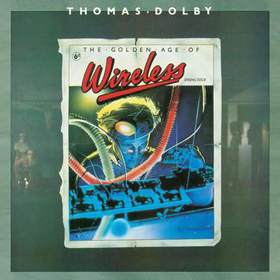
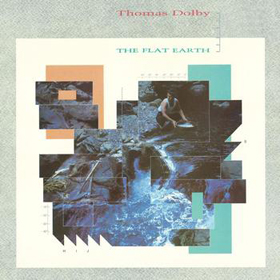
CrypticRock.com – Right, and one can imagine that it also makes it stimulating because it is a new challenge for yourself, correct?
Thomas Dolby – Yes, I’ve always liked to keep challenging myself, and I am very adverse to the easy temptation to fall into formally. For example, after the commercial success with “She Blinded Me With Science,” even at the time, it wasn’t hard to define a formula that made that song successful. It was very catchy, quirky, and bountiful. It wasn’t a typical Pop relationship song at all, it had a technological flair to it and an easily memorable image and video.
It would have been the easiest thing in the world to say, “Right, I have now figured out who I am, what my voice is, how people identify me, and I am going to milk it for all it’s worth.” That would be the standard music industry reaction to a breakout success like that. That would have been very dull for me, so much to the annoyance to my record label, management, and things like that.
I kept moving on from there and very quickly took a change of direction with my second album. I think it’s frustrating to the music business because they like people to maximize revenue once you’ve broken through. Once they make that investment and broken an artist through, they really want to get the best possible return investment. I was a source of annoyance to them.
CrypticRock.com – As an artist, you want to follow what you want to do. While you are an annoyance to the labels, you stuck with what you wanted to do, and that is a positive thing.
Thomas Dolby – Yeah, I think that’s exactly right. You get to middle age with a mortgage and kids to put through college and you sort of wonder what you could have stuck with the formula a few songs longer than you did (laughs). That’s all part of growing up.
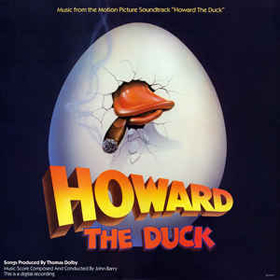
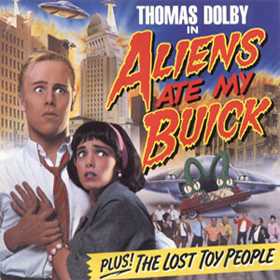
CrypticRock.com – Understandable to think about that in hindsight. You recently released an autobiography, entitled The Speed of Sound: Breaking the Barriers Between Music and Technology. This book covers a list of topics including your career in music, the corruption in the industry, and much more. What was it like putting this piece of work together?
Thomas Dolby – I really enjoyed it. The first draft of the book was really based on personal diaries that I kept over the years, meeting notes, and things like that. I was able to piece them together and fill in the blanks, I was able to do that pretty much through stream consciousness. That was fantastically good fun. What was a lot harder was the editing process to pair that down and make it an enjoyable and compelling narrative. That was the first book that I have written. Obviously, I have some experience in writing, but nothing in this form. That was a very enjoyable, new endeavor for me.
CrypticRock.com – It sounds like it was exciting. What is interesting about an autobiography is you are writing down your thoughts and your experiences of course. When you are looking back on something that happened, you may have felt a certain way about it at that time, but now, all these years later, you feel differently. Does that change the way you articulate something in the writing?
Thomas Dolby – What was charming about the diaries was that I didn’t see the big picture at the time; like the day of or the morning after the experience. I didn’t contextualize it really, that was what made it charming. You would read these diaries, with the benefit of hindsight, you could see mistakes and pitfalls that I fell into.
That made it interesting reading. Whereas, if I had written a whole thing from today’s perspective, you would have that benefit of hindsight, it would be a different kind of book; more a music business tech book by a guru in 2016. That, to me, was much less interesting than being a fly on the wall as I went through these varied and exciting scenarios.
CrypticRock.com – Right, that is quite more interesting to read. You had mentioned how you sort of went your own direction, being an annoyance to the record label. Following 1992’s Astronauts & Heretics album, you took a long break from it all. Rightfully disenchanted with it all, what inspired you to return with a A Map of the Floating City in 2011?
Thomas Dolby – I have been away from music for a long time because of my work in the Silicon Valley and company I started, Beatnik. I really wanted to immerse myself in music again and I was delighted that now I didn’t have to answer to any record companies or management. Nobody was funding me to do this, so I really had a free hand. Also, I have a different set of expectations. I was never really expecting to be in the charts again and be on the radio. That felt perfectly fine, but I wanted to catch up on the years that I had been away. I had a few song ideas that I have been percolating in my imagination for years.
As I mentioned “Simone,” I had that melody and the idea in my head for a good ten or twelve years before I had attempted to get it down as a recording. I moved my family back to England, my kids were teenagers. We’ve been in California where the schools really suck. We moved back to England where the schools in our area are very good, as it happens, they are very good in the English countryside. It was a return to the country, to the area where I grew up, it had a lot of very strong memories in a sense of getting back to my roots. We live in a very gorgeous place and I was able to set up a studio in a lifeboat in our garden powered by the wind and sun with fantastic views all around. All in all, it was a very inspiring setting in which to create a new album. I hope that is reflected in the sounds of the album.
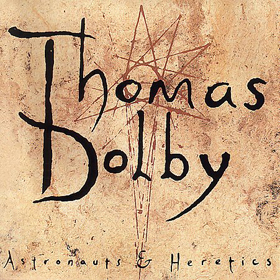
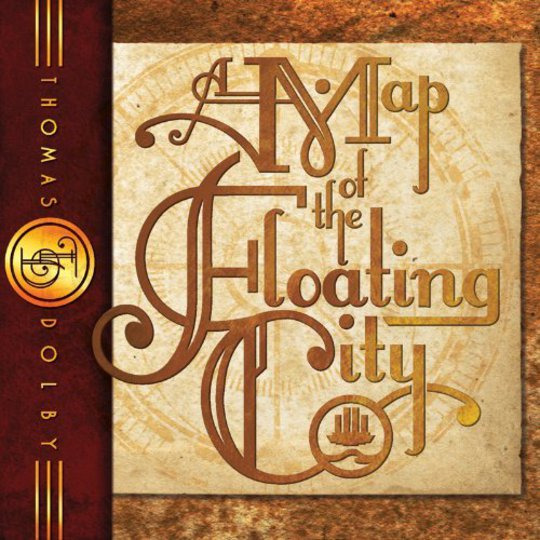
CrypticRock.com – Absolutely, and it was also exciting for fans to see you come back like that. It has been five years now since the record has been out. Will there perhaps be some new music in the future?
Thomas Dolby – I hope so yes. I was teaching film music at John Hopkins University. It’s been many years since I did a commercial film project. I feel, in a way, to be authentic for them, I should be considering working on a new film score project. It could be that, I kind of doubt that it will be an album. Albums seem to have lost their relevance a little bit now, that’s sort of liberating in some ways, because we don’t always compose songs in convenient batches of ten or twelve.
CrypticRock.com – Right, exactly, it just comes as it comes. Albums nowadays are wonderful, but it seems like it is a single world now or an EP world. Many artists do not release full-length albums as much anymore.
Thomas Dolby – Yeah, that’s certainly true. It’s a shame in some ways because an album was like a snapshot of an artist’s life. Similarly, the pressure to make albums, there’s an old cliché that when you make your first album, you have 20 odd years of experience to get across. Then, your second album, you have eight months of touring, airports, hotel lounges, and it is not very much to draw on. I think the manufacturing cycle the record labels would put bands through was not always a healthy thing for the quality of the music.
CrypticRock.com – That is a very interesting point, and well taken. Speaking of second records, The Flat Earth was really a phenomenal piece of music. That record had the single “Hyperactive.” It is really a spectacular track. What is the story behind it?
Thomas Dolby – I originally wrote it for Michael Jackson. I bumped into him during the editing of the “She Blinded Me With Science” video. He was in the editing suite next door and I recount the story in the book. I met him at the water cooler one day, we shared some pleasantries, he liked my song and my video, and invited me to his house in LA. Spent a very enjoyable evening there, which I also talk about in the book.
He had mentioned to me that he was looking for new material so I came up with the song “Hyperactive” and intended it for Michael. He didn’t really get it, he said he liked the drums, and that was it (laughs). I thought the melody would be killer for his voice. In fact, towards the end of the song, you hear a girl singing the melody like an octave up from me, and that was more sort of homage to the way I thought Michael might have sung it if he had decided to cover it.
CrypticRock.com – Yes, that interesting story is in the book, like you said. It fit you well, are the lyrics something personal? Were you hyperactive as a child?
Thomas Dolby – Yeah, I definitely was, and from talking to Michael, it sounds like he was a little bit the same. We actually found in an odd way that we had a lot in common. We both had siblings and parents who were sort of breathing down our necks. We both traveled a lot, he was on the road, I was traveling with my father, who was an archaeologist, living in boarding schools and things like that. We sort of reminded each other of us when we were young, that was definitely a reflection of that aspect of our childhood.
CrypticRock.com – Very interesting, more a reason for people to check out this book for all these compelling stories. Obviously, in the ’80s, Pop music was heavily electronic. It kind of went away for awhile, it seemed like people snubbed the synthesizer and frowned upon it for a while. Now, electronic music is back in full swing in a lot of Alternative Pop music. What do you think about that, that it has kind of come back the way it has?
Thomas Dolby – The good thing about the landscape today is that there is room for lots of different genres. As late as the early ’90s, the pendulum swung in one direction or another. At the beginning of the ’80s, yes, there were electronic bands, people like The Human League, Soft Cell, Gary Numan, Depeche Mode and so on. That music was frowned on by mainstream Rock, which was very much drum and guitar driven. Right about the middle of the ’80s, it became more mainstream with things like New Order having big electronic hits and Depeche Mode becoming really huge.
With the advent of Grunge, Nirvana and stuff like that, in the beginning ’90s, it seemed to swing back towards guitars and drums with a bit more of a Punk influence. I think the thing is, that now a days, because it’s not so pigeonholed, the whole Rock genre game, there is more of a spectrum that allows you to have a playlist that includes Nirvana and Depeche Mode. Whereas, at the time, it would be horrifying to like both bands at the same time. I think people are more open-minded now, more tolerant. It makes sense that Electronica is happening now, but there is also a lot of Indie guitar-based stuff as well.
CrypticRock.com – That is a very valid point, people are a little more open-minded when it comes to music these days, or at least more openly. One may be ousted if they liked both Depeche Mode and Heavy Metal years ago. You have worked in soundtracks over the years as well. My last question for you is pertaining to movies. CrypticRock covers music and Horror/Sci-Fi films. If you are a fan of the genres, what are some of your all-time favorites?
Thomas Dolby – I love the soundtrack to Solaris (1972), which is very ambient. It’s not what you normally would associate with Sci-Fi. When you think Sci-Fi, you think Blade Runner (1982), or something like that. I am fond of Solaris because of its dreamy quality. In the Horror mode, I don’t see that many Horror films. The last I saw was probably The Blair Witch Project (1999). That shows you how out of date I am (laughs).
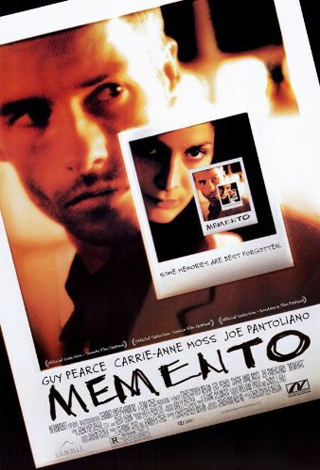
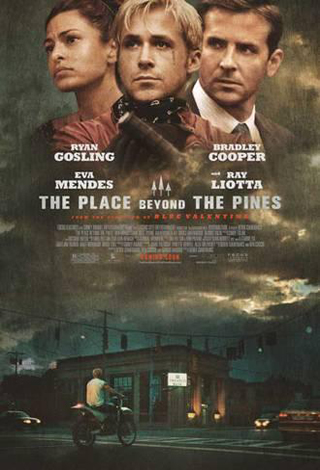
CrypticRock.com – Horror films are not for everyone, do you have a particular genre of film that you enjoy?
Thomas Dolby – I don’t tend to go for Hollywood blockbusters. I tend to like unusual films that break away from the standard structure. I like Memento (2000), Mulholland Dr. (2001), The Place Beyond the Pines (2012), these are all ones that get away from the Hollywood formula. I am into binge watching, Breaking Bad, Homeland, Vikings, Nurse Jackie, The Wire, and The Sopranos. I love binge watching a great series, it’s a fantastic time for TV for that reason that they are able to completely rethink the standard Hollywood arcs and formula both in character and writing but also in musical styles.
CrypticRock.com – You mentioned some really great series, it is a great time for television series such as that. It almost seems as if series have surpassed Hollywood films per se in quality a lot of times nowadays.
Thomas Dolby – Right now, no questions. I think it’s much more appealing for creative people to be able to break outside of that formula. You see some great people doing TV who would have turned their noses up at it twenty years ago.
For more on Thomas Dolby:
thomasdolby.com | Facebook | Twitter
Purchase The Speed of Sound: Breaking the Barriers Between Music and Technology: A Memoir:
[amazon_link asins=’1250071844′ template=’ProductCarousel’ store=’crypticrock-20′ marketplace=’US’ link_id=’ba8661d3-85f9-11e8-bd22-493031f09910′]

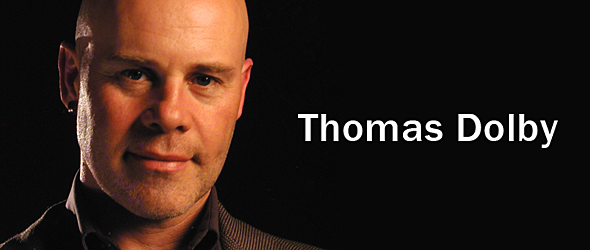
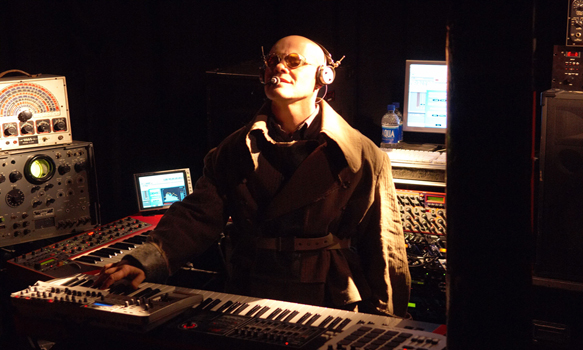

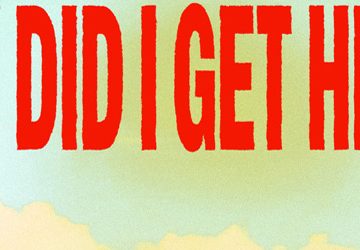
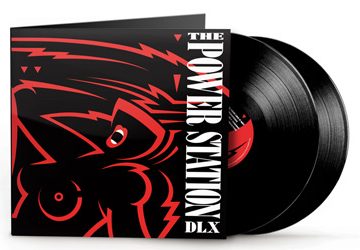


No comment